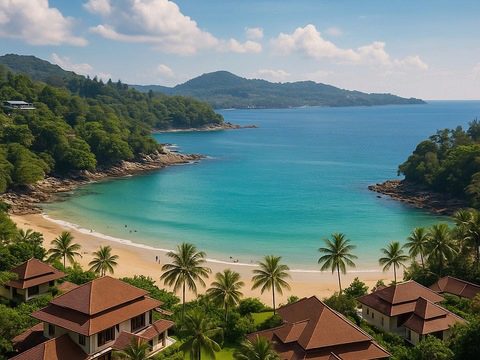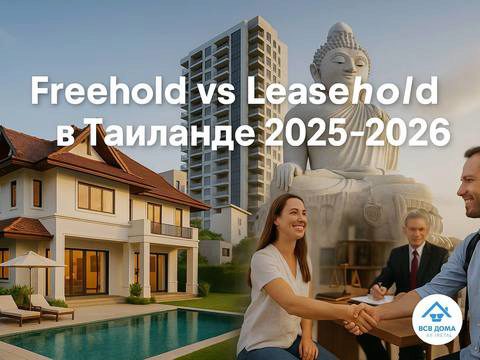Complete Guide to Freehold and Leasehold in Thailand (2025)
What is Freehold
Freehold means full, perpetual ownership. In Thailand, foreigners can buy freehold only for condominiums, provided the total foreign ownership does not exceed 49% of the project area.
Advantages of Freehold
- Full rights: sell, gift, inherit, or rent out without restrictions.
- Generally 10–15% higher resale value than leasehold.
- Eligible for Thai bank mortgages at 6–8% per annum.
Disadvantages of Freehold
- Only applies to condominiums, not to houses or villas.
- If the 49% foreign quota is filled, you must look for other options.
What is Leasehold
Leasehold is long-term rental of property. In Thailand, standard lease is 30 years with two possible renewals (up to 90 years total).
Commonly used for villas and houses on land, as foreigners cannot own land directly.
Advantages of Leasehold
- Lets you have a house or villa on land despite land ownership restrictions.
- Often cheaper at the initial purchase.
Disadvantages of Leasehold
- Limited term, property value typically drops near lease expiry.
- Renewal depends on the landowner’s decision.
- Mortgages are usually not granted if less than 20 years remain on the lease.
Other ownership options
Through a Thai company
Foreigners can own up to 49% of a Thai company, with Thais holding at least 51%. Popular for commercial properties and large villas. Requires careful legal structuring.
Usufruct and Sap-Ing-Sith
Grant rights to use property for up to 30 years, with options to renew. Common to secure additional protections.
Via a Thai spouse
Land is registered under the Thai spouse’s name, with leasehold or usufruct agreements to protect the foreign partner.
Taxes and fees in 2025
| Tax Type | Rate | Typically Paid By |
|---|---|---|
| Transfer Fee | 2% | Usually shared 50/50 |
| Specific Business Tax | 3.3% (<5 years ownership) | Seller |
| Stamp Duty | 0.5% | Seller (if no SBT) |
| Withholding Tax | 1% (company) / progressive for individuals | Seller |
| Lease registration | 1% + 0.1% | Lessee |
| Annual property tax | 0.3–1% of appraised value | Owner |
Changes for 2025
- Stricter source of funds checks for foreign buyers.
- New annual property tax of 0.3–1%.
- Discussion of extending leasehold up to 99 years and allowing foreign land ownership with investments from 500 million THB.
How to choose
| Your goal | Recommended structure |
|---|---|
| Buying a condo to live or rent out | Freehold in a condominium |
| Buying a villa or house on land | Leasehold or through Thai company |
| Large investment project | Thai company ownership structure |
Purchase process
- Select property and verify land title (Chanote or Nor Sor 3 Gor).
- Sign reservation and pay deposit (10–20%).
- Legal due diligence with a Thai lawyer.
- Sign sale or lease contract.
- Payment and registration at Land Office.
- For freehold: transfer funds from abroad with a Foreign Exchange Transaction Form.
Conclusion
Freehold is the best option for condos with secure ownership and good resale potential. Leasehold suits those wanting a house or villa on land, understanding the term limits and renewal risks. For large investors, a Thai company may be appropriate.
Thailand remains one of the top destinations for resort property investments in 2025, thanks to strong demand, growing tourism, and high rental yields.

